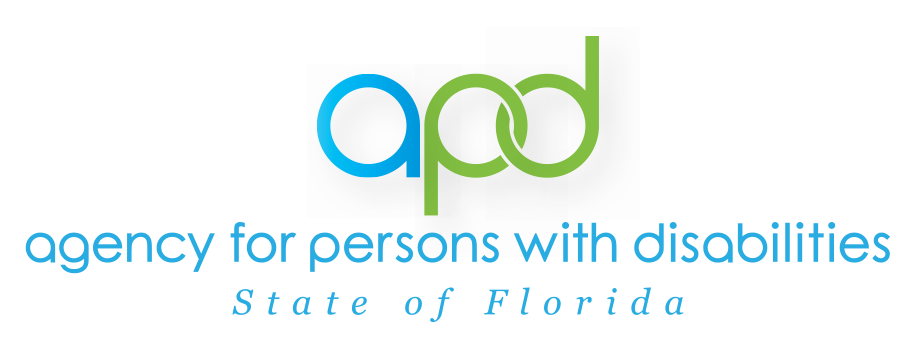Supplies and Equipment
Consumable Medical Supplies
Consumable medical supplies are non-durable supplies and items that enable recipients to perform activities of daily living. Consumable medical supplies are of limited usage and must be replaced on a frequent basis. Supplies covered under the waiver must meet all of the following conditions:
- Relate to a recipient’s developmental disability
- Not covered by the Medicaid state plan
- Meet the definition of medical necessity
- All items must meet applicable standards of manufacture, design, and installation
This service also includes devices, controls, or appliances specified in the recipient’s plan of care which enable recipients to increase their abilities to perform activities of daily living, or to perceive, control, or communicate with the environment in which they live. This service also includes items necessary for life support, ancillary supplies, and equipment for the proper functioning of such items, and durable and non-durable medical equipment not available under the Medicaid state plan. Items reimbursed with waiver funds must be in addition to any medical equipment and supplies furnished under the Medicaid state plan and must exclude those items that are not of direct medical or remedial benefit to the recipient.
Medical or surgical items are consumable, expendable, disposable, or nondurable and appropriate for use in the recipient’s home.
Providers must:
- Be 18 years or older
- Home health agencies and durable medical equipment (DME) companies must provide a bond, letter of credit, or other collateral at the time of application, unless the agency has been a Medicaid enrolled provider for at least one year prior to the date it applies to become a waiver provider and has had no sanctions imposed by Medicaid or any regulatory body
- Medical supply companies and durable medical equipment suppliers must hold local occupational licenses or permits, in accordance with Chapter 205, F.S., and must be currently licensed in accordance with Chapter 400, Part VII, F.S.
Durable Medical Equipment
Durable medical equipment includes specified, prescriptive equipment required by the recipient. Durable medical equipment generally meets all of the following requirements:
- Can withstand repeated use
- Is primarily and customarily used to serve a medical purpose
- Is generally not useful to a recipient in the absence of a disability
- Is appropriate for use in the home
Providers of DME include home health or hospice agencies, pharmacies, medical supply companies, and durable medical equipment suppliers and vendors, such as discount stores and department stores. In accordance with Rule 59G-4.070, F.A.C., to enroll as a Medicaid provider, a DME and medical supply entity must comply with all the enrollment requirements outlined in the Durable Medical Equipment and Medical Supply Services Coverage and Limitations Handbook.
Home health agencies and durable medical equipment companies must provide a surety bond, letter of credit, or other collateral at the time of application, unless the agency has been a Medicaid-enrolled provider for at least one year prior to the date it applies to become a waiver provider and has had no sanctions imposed by Medicaid or any other regulatory body, in accordance with section 409.907, F.S.
Providers must:
- Be 18 years or older
- In accordance with 42 CFR Part 440.70, providers of DME must be in compliance with all applicable laws relating to qualifications or licensure
- In accordance with Chapter 205, F.S., independent vendors, assistive technology suppliers and assistive technology practitioners certified by RESNA can also provide these services
- Medical supply companies and durable medical equipment suppliers must hold local occupational licenses or permits, in accordance with Chapter 205, F.S., and be currently licensed in accordance with Chapter 400, Part VII, F.S.
Environmental Accessibility Adaptations
Environmental accessibility adaptations (EAA) are those physical adaptations to the home that are required by the recipient’s support plan and are medically necessary to avoid institutional placement of the recipient and enable the recipient to function with greater independence in the home.
Home accessibility assessments can also include pre-inspection of up to three houses a recipient or family is considering for purchase, review of ceiling lift and track systems, van conversions, and oversight and final inspection of any approved EAA.
If the construction is not completed by the independent assessor, the assessor can still provide construction oversight and a final inspection.
Providers must:
- Be 18 years or older
- Any enrolled environmental accessibility adaptations (EAA) provider who provides construction work must present a qualified business number, as required in section 489.119, F.S.
- Providers of EAA services include licensed general or independent licensed contractors, electricians, plumbers, carpenters, architects, and engineers
- Other professionals who can provide EAA assessments include providers with experience in the field of environmental accessibility adaptation assessment, with a RESNA certification, and an occupational license
Personal Emergency Response Systems (unit and services):
A personal emergency response system (PERS) is an electronic communication system that enables a recipient to secure help in the event of an emergency. The recipient can also wear a portable "help" button that allows for mobility while at home or in the community. The system is connected to the person's phone and programmed to signal a response center. When the "help" button is activated, qualified personnel are dispatched to the recipient’s location. The need for a personal emergency response system must be addressed in the recipient’s support plan.
Providers must:
- Be 18 years or older
- Be licensed electrical contractors, alarm system contractors, contract agencies for Community Care for the Elderly (CCE) as authorized by Chapter 430, F.S., Community Care for Disabled Adults (CCDA) programs as authorized by Chapter 410, F.S., or hospitals. Freestanding equipment can also be purchased from independent vendors, such as discount or home improvement stores, but these vendors cannot provide monitoring
- Electrical or alarm system contractors must be licensed in accordance with Chapter 489, Part II, F.S.
Select the button below for application information
